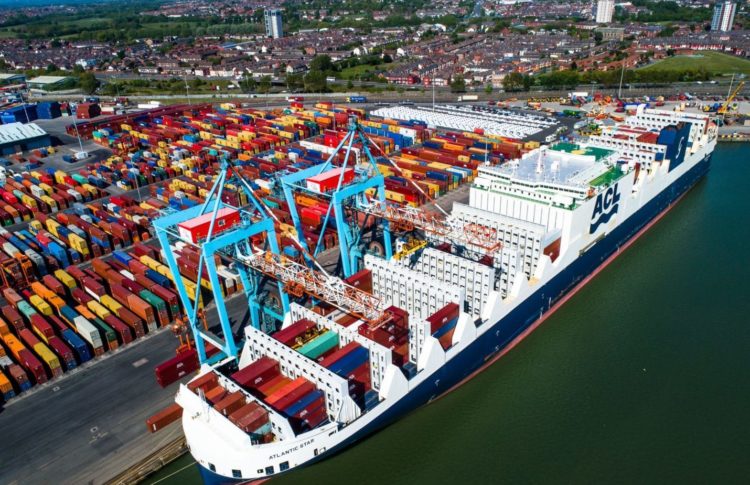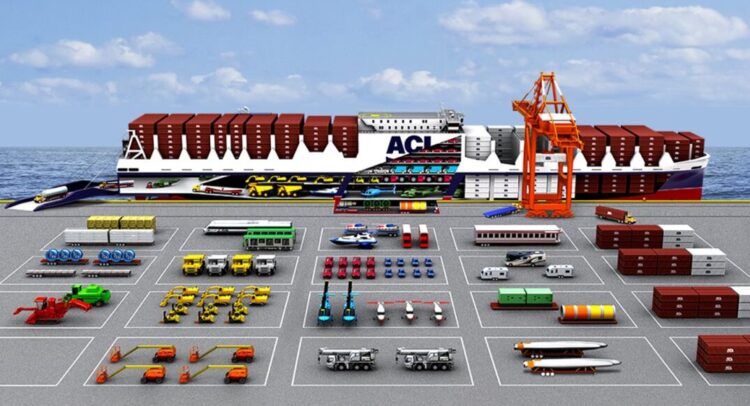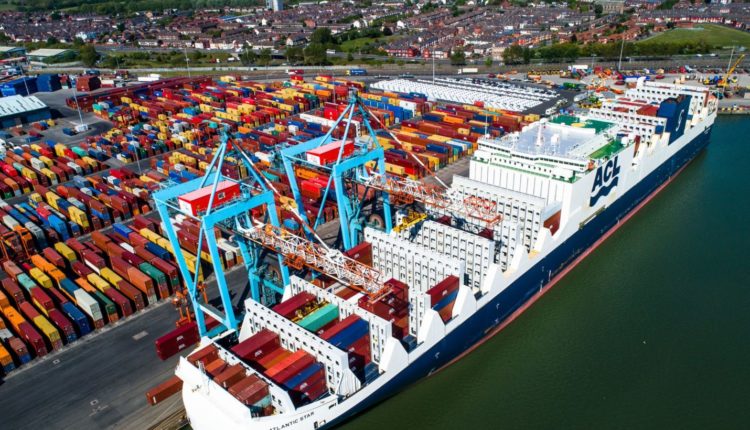ACL raises concerns over delays at Port of Liverpool
Shipping giant ACL has raised concerns with Port of Liverpool owner Peel Ports after its huge container ships suffered delays arriving and leaving the port. Tony McDonough reports

Transatlantic shipping giant Atlantic Container Line (ACL) is in talks with the Port of Liverpool, and with tug operators, over delays in getting its vessels in and out of the Mersey.
Addressing a webinar organised by industry body Mersey Maritime, ACL managing director Anders Ivarsson said its huge container vessels aimed to be in and out of the port in 24 hours but on occasion this had extended to 48 or 60 hours.
The two main issues he identified were too few dock workers at the port to help with the unloading and loading of containers and not enough tug vessels to safely bring the ships in and out of the port. Mr Ivarsson said the company was speaking to port owner Peel Ports about the first issue, and to independent tug operators about the second point.
Liverpool is home to ACL’s nerve centre, employing 150 staff. Its team based in Duke Street arranges for all kinds of freight, from consumer goods to helicopters, cars and construction equipment, to be transported quickly and safely across the Atlantic.
The business operates out of Liverpool, Antwerp, Hamburg and Gothenburg (served with a dedicated feeder) and its giant vessels sail to Halifax, New York, Baltimore and Norfolk on the North American east coast.
Liverpool is the closest of the European ports to North America with travel time across the Atlantic as little as eight days, compared to 14 days from Hamburg.
ACL’s links with Liverpool go back to 1967. Cunard line was one of the original co-founders in ACL and port of Liverpool has been served on a weekly basis since then.
The company is now amongst the biggest operators at the port and has recently signed a 25-year deal with Peel Ports. Mr Ivarsson said Liverpool had been the “best port in Europe” for ACL and he was keen for that to be the case once again.
In the Face-2-Face event, he told Mersey Maritime members: “What is happening in Liverpool is not great at the moment. At Gladstone Locks at Seaforth it is very tight to get the ships in and out.
“We need four tugs to get us in, more commonly on the east-bond calls, we only get three within a reasonable service window and consequently we have to omit Liverpool. This has a negative impact on the container supply into the UK.
Once at the port there are not enough stevedores on site. Liverpool has taken delivery of new cranes and that will massively increase capacity later this year when they are assembled. This is fantastic for us but we need these other issues to be fixed quickly.
“This is causing disruption for our customers. We have signed up for 25 years at Liverpool and we are eager to support UK exporters by getting their freight across the Atlantic quickly. This is a difficult situation that needs to be resolved.”
Richard Mitchell, port director – containers, at Peel Ports, said: “The Port of Liverpool continues to provide a major strategic gateway for the UK’s import and export activity.
“Due to continued growth and demand, we have seen a volume surge of in excess of 20% and we have reacted quickly and decisively to this in the expectation that we will continue to grow even further, given the interest in our proven capabilities and location.
“We have been in regular and direct contact with the providers of the towage services within our area and continue to liaise closely with them, as such a number of additional tug boats are now in-situ and the third party issue has been resolved.”
ACL was founded in 1967 by and today is owned by the Italian global shipping business Grimaldi. In 2015/2016 the company replaced its fleet with a new generation of vessels. The five new ships are Atlantic Star, Atlantic Sail, Atlantic Sea, Atlantic Sky and Atlantic Sun.
Each vessel is 45,000 tonnes ‘dead weight’ and up to 120,000 tonnes when fully laden. Each one is 296 metres long with a draft (gap between the waterline and the deepest part of the ship) is 11.5 metres.
Most major shipping lines will offer either roll-on, roll-off ships or container ships. ACL’s vessels offer both. They comprise 33,800 sq m of ro-ro capacity and space for 3,800 containers. They are 10% faster than ACL’s previous fleet and their emissions are 65% lower.

Container ships, particularly those operating in the stormy waters of the Atlantic, often see containers go missing at sea. According to the World Shipping Council, almost 1,400 containers go overboard every year. However, Mr Ivarsson said ACL had never lost a single container.
He added: “Despite the winds and huge waves in the Atlantic, we have never had a single container lost overboard. We are aware of one vessel off Hawaii that lost 2,000 containers in bad weather. All of our containers are well secured. And we have crew members walking through the ro-ro decks each day ensuring everything is safe.”
Mr Ivarsson said, despite the pressures of the global pandemic, ACL had kept its transatlantic service going smoothly in the past 12 months and he paid tribute to the company’s staff, particularly the team in Liverpool.
“We have 165 people in Liverpool. We relocated to a new office in Duke Street in the city centre five years ago,” he said. “We would not be where we are today without our team and they have adapted quickly over the past 12 months to be able to work remotely.
“At ACL we have a flat structure. It means the team that is dealing with customers have direct lines of communication to senior management. That helps with quick decision-making and with ensuring our customers see their cargo go from door to door as quickly and smoothly as possible.”

